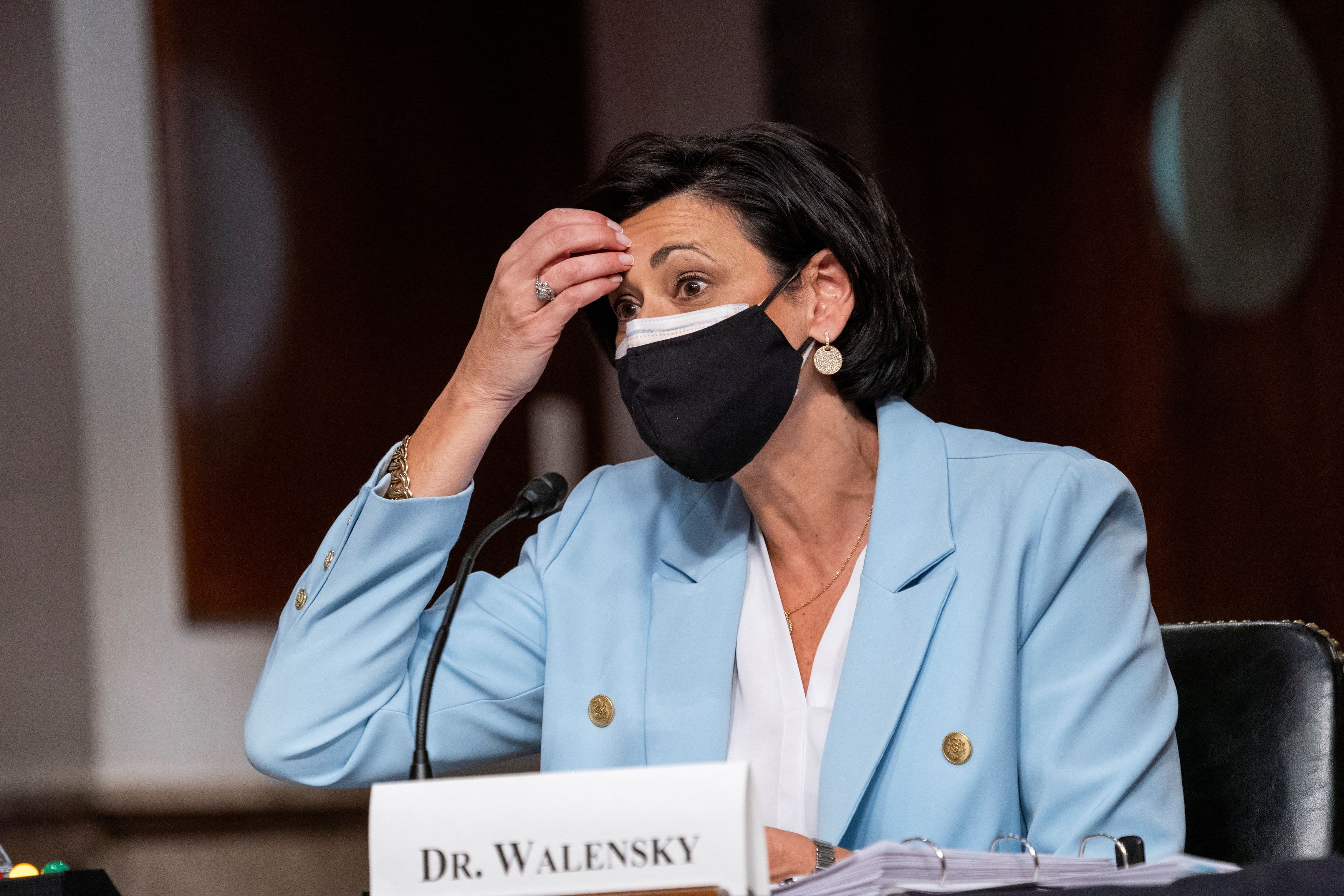CDC wants to give people a break from wearing masks as pandemic improves, director says
Dr. Rochelle Walensky, director of Centers for Disease Control and Prevention testifies during a Senate Health, Education, Labor, and Pensions Committee hearing to examine the federal response to the coronavirus disease (COVID-19) and new emerging variants at Capitol Hill in Washington, D.C., U.S. January 11, 2022.
Shawn Thew | Reuters
The Centers for Disease Control and Prevention is reviewing its mask guidance, shifting its focus to Covid hospitalizations as a key measure of the severity of the outbreak and future guide for determining whether health safety protocols need to be tightened, according to CDC Director Dr. Rochelle Walensky.
“We must consider hospital capacity as an additional important barometer,” Walensky told the public during a White House Covid update Wednesday. “We want to give people a break from things like mask wearing when these metrics are better and then have the ability to reach for them again should things worsen,” she said.
The CDC currently recommends that people wear masks in indoor public places regardless of their vaccination status if they live in an area with high viral transmission. Nearly every county in the U.S. has high transmission right now, according to CDC data. People are required by federal law to wear masks on planes, buses trains and other forms of public transportation.
However, states have started easing public health measures as new infections from the omicron variant rapidly decline from their peak levels in January. New York and California have dropped mask mandates for businesses, while New Jersey has also gotten rid of its mask requirement for schools.
Jeff Zients, White House Covid response coordinator, said the Biden administration is closely coordinating with state governors, public health experts and business leaders as the federal government plans for what the U.S. Covid response will look like as the wave of infection from the omicron variant subsides.
“We’re moving toward a time with Covid isn’t a crisis, but it’s something we can protect against and treat,” Zients said during Wednesday’s briefing. “The president and our Covid team are actively planning for the future.”
The U.S. on Tuesday reported an average of about 136,000 new Covid cases per day over the last week, down 83% from the record high average of more than 800,000 cases per day set on Jan. 15, according to a CNBC analysis of data from Johns Hopkins University. New infections are declining in nearly every state and D.C., according to the data.
About 85,000 patients are in U.S. hospitals with Covid, according to a seven-day average of data from the Department of Health and Human Services as of Tuesday. That’s also down from a peak of nearly 160,000 on Jan. 20.
“As we have fewer cases, people will become more comfortable with taking off their mask, but we will certainly want people to have the flexibility to wear one if they so choose,” Walensky said. The CDC director noted that people, regardless of transmission levels in their community, should wear a mask for 10 days if they have been diagnosed with Covid.
Omicron spreads faster than past variants, but it generally doesn’t make people as sick as the delta or alpha strains. As infections soared to unprecedented levels in the U.S., hospitalizations and deaths did not increase at the same rate. However, hospitals have still faced tremendous pressure during the omicron wave because the variant can cause severe disease in the unvaccinated, the elderly and people with compromised immune systems.
White House chief medical advisor Dr. Anthony Fauci told The Financial Times last week that the U.S. is heading out of the “full-blown pandemic phase of Covid-19.”
For all the latest health News Click Here

